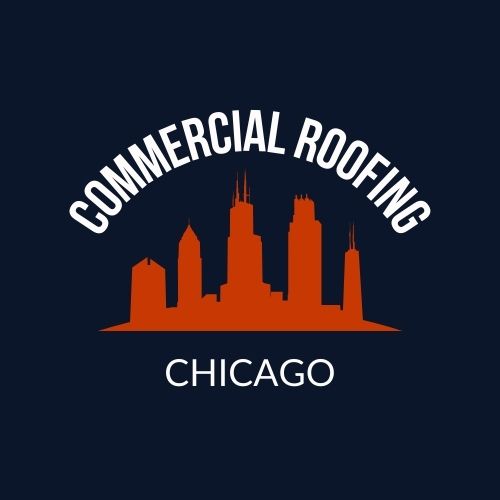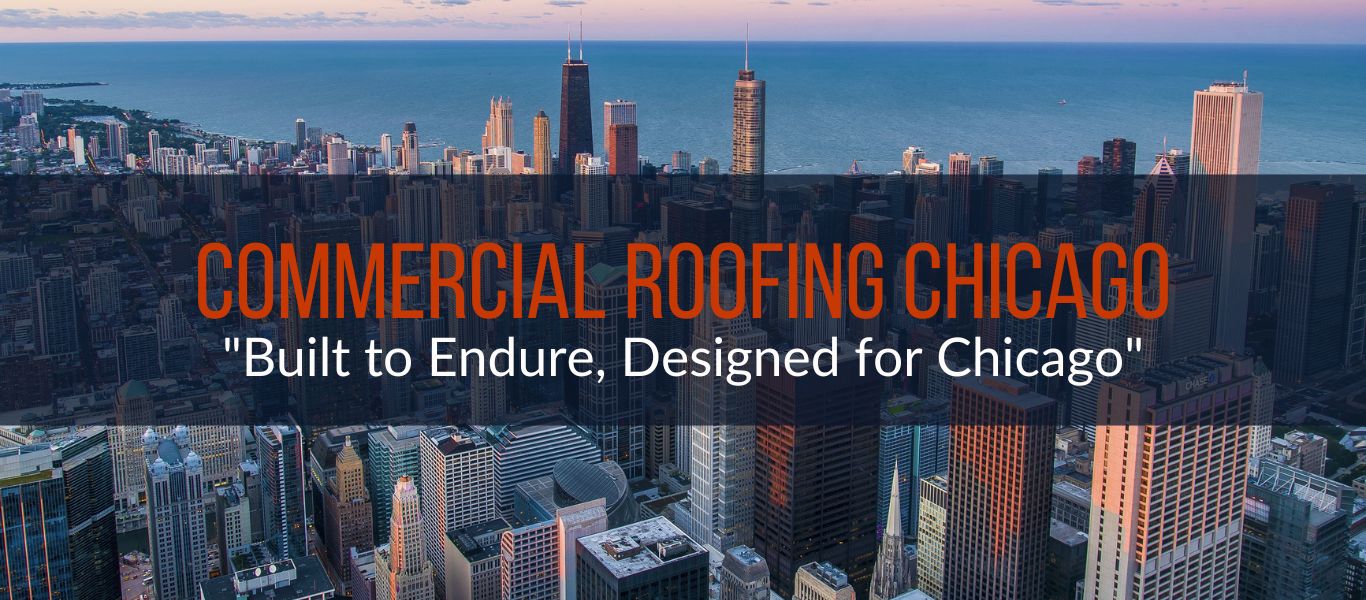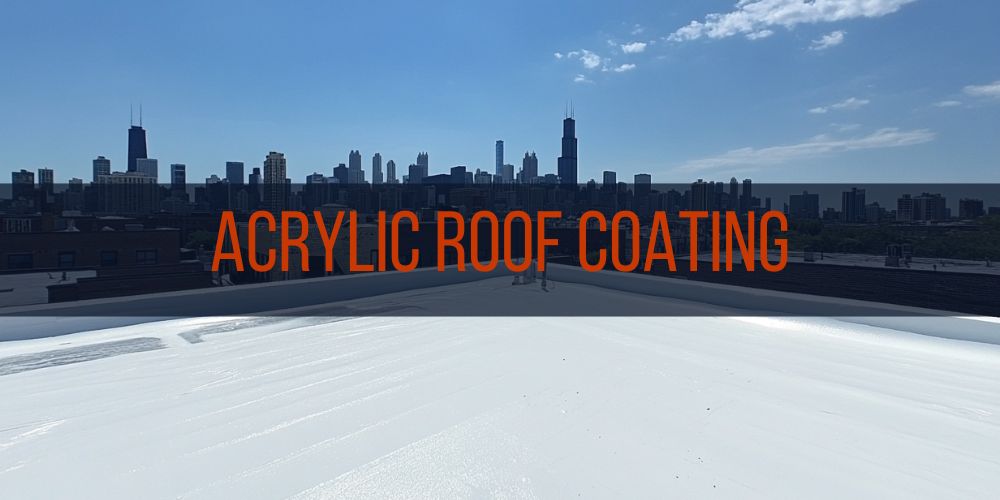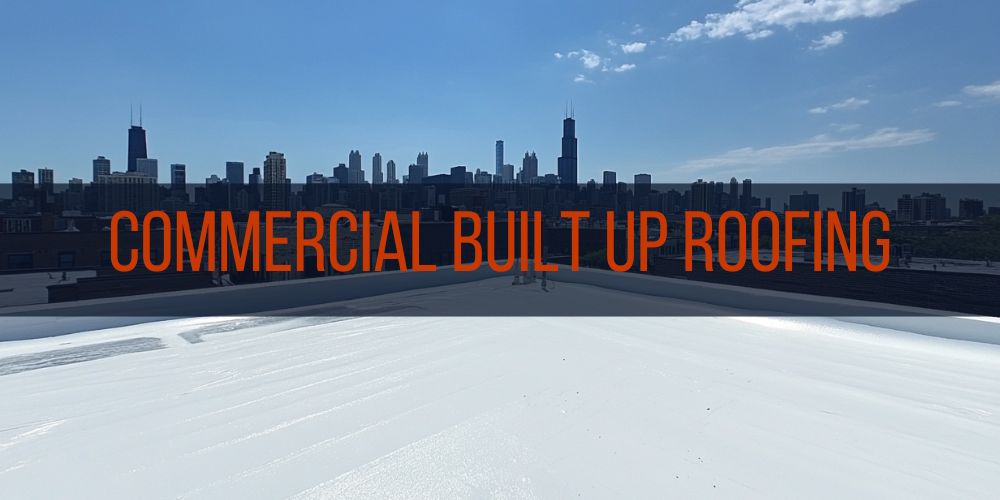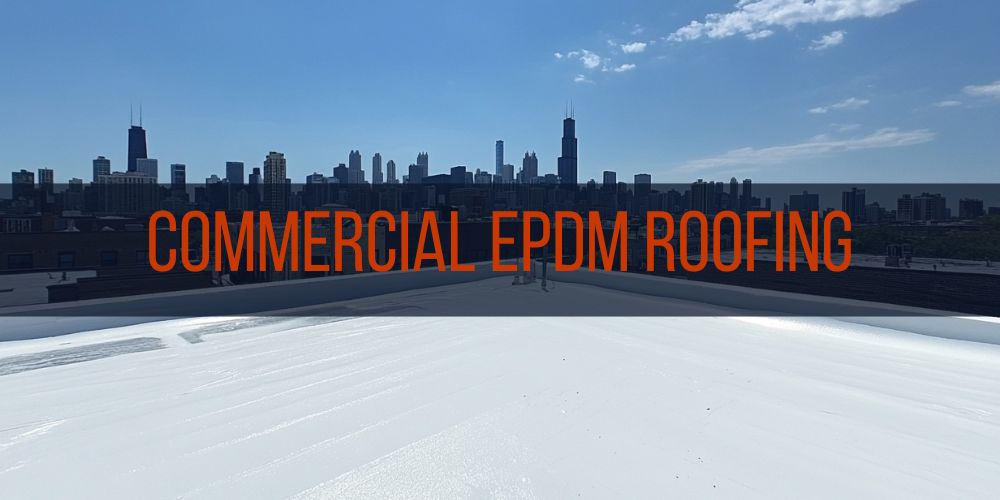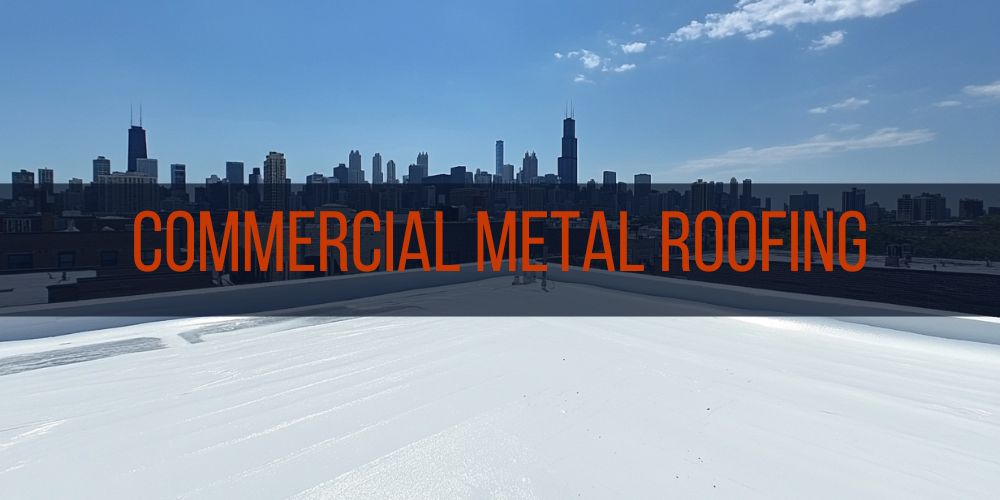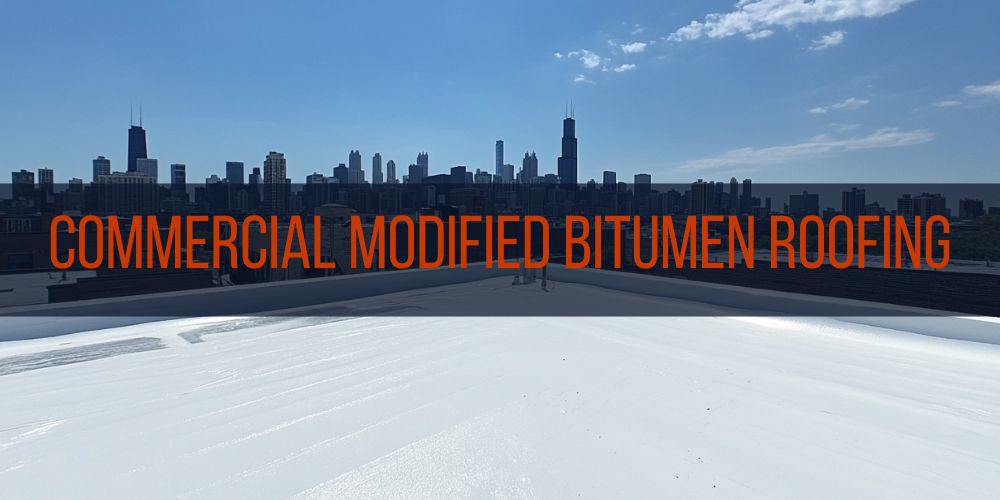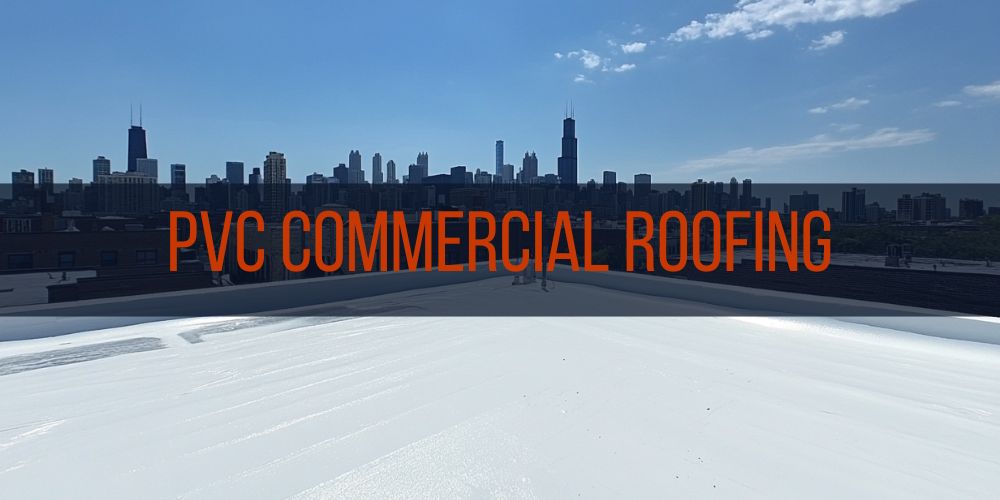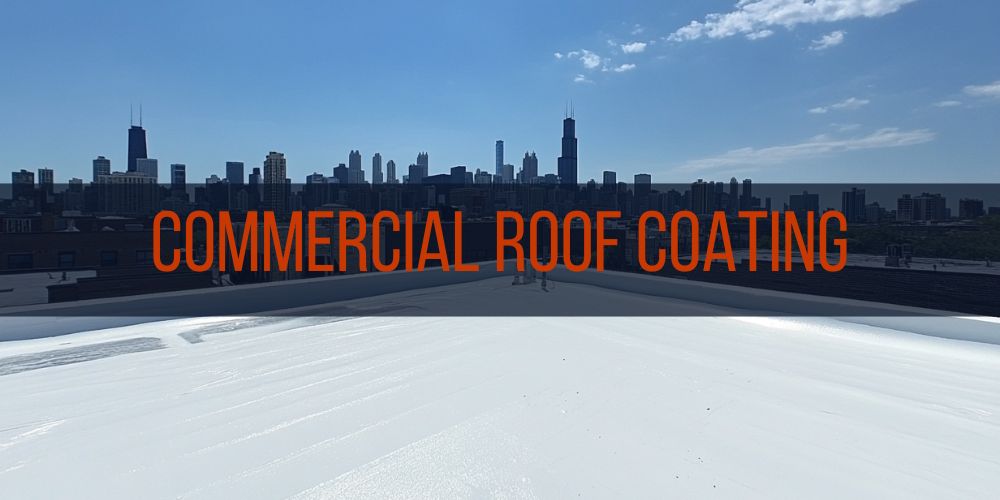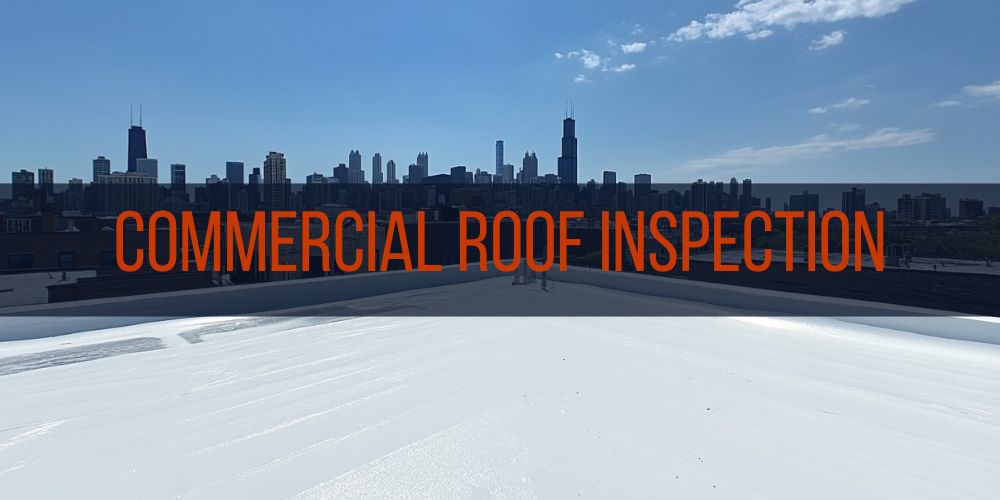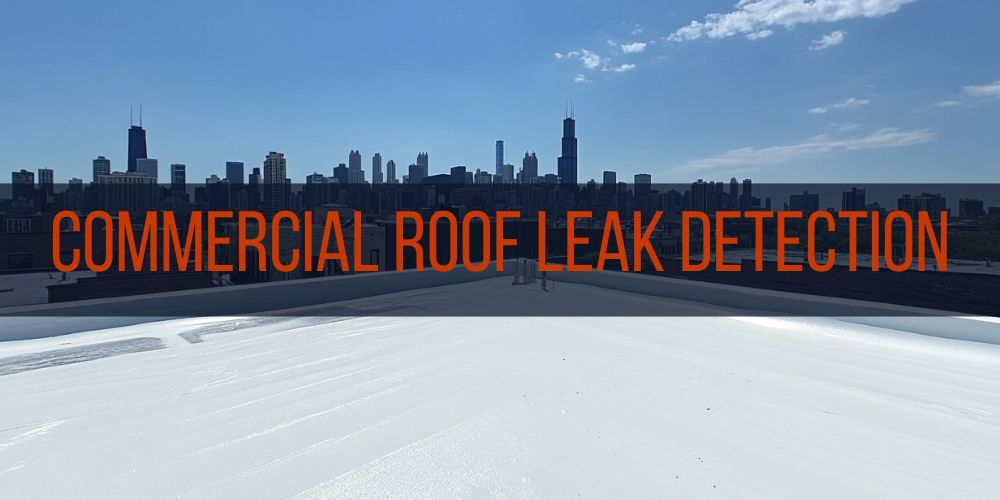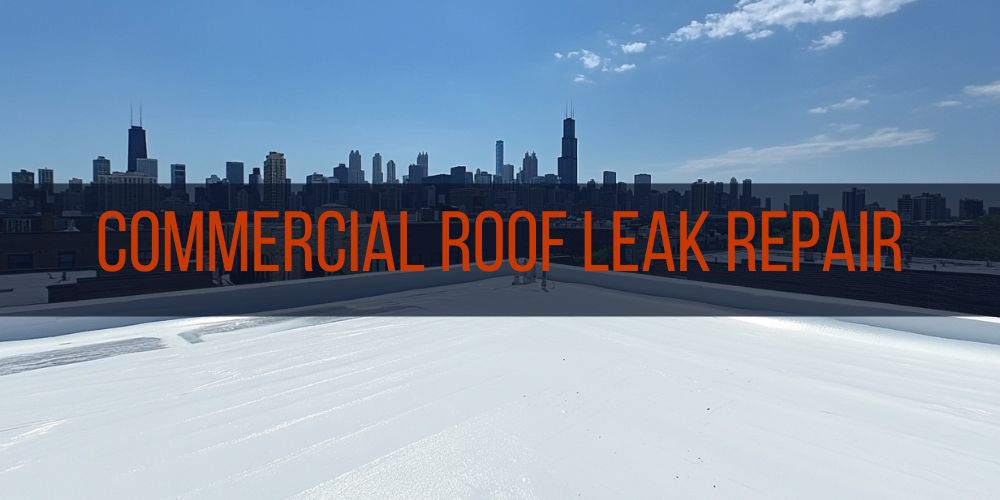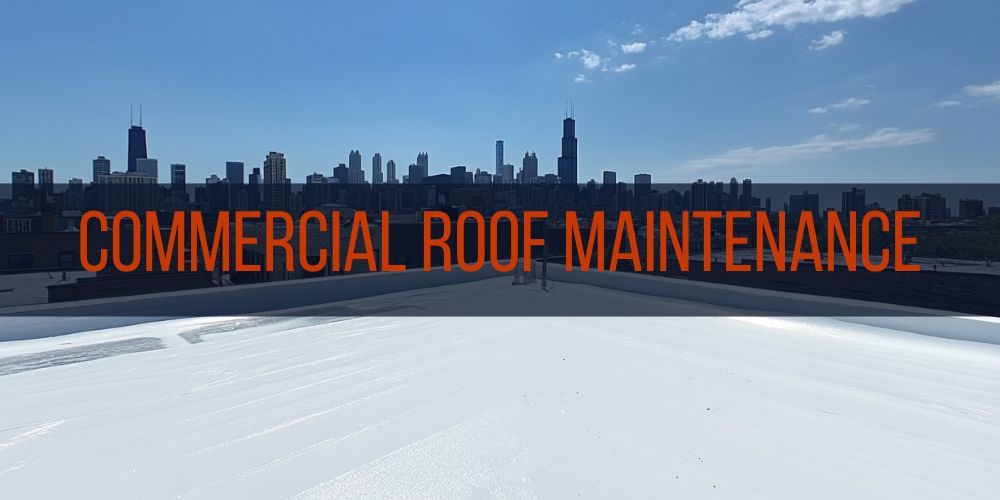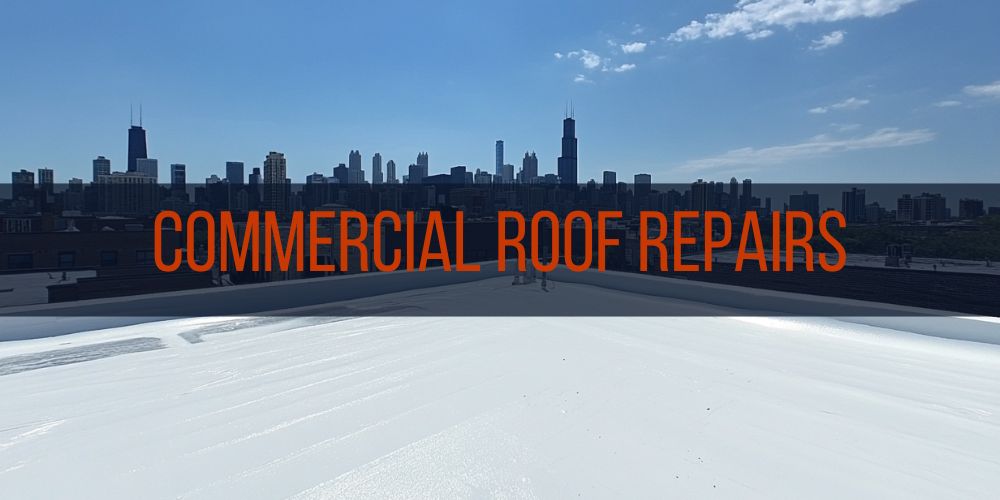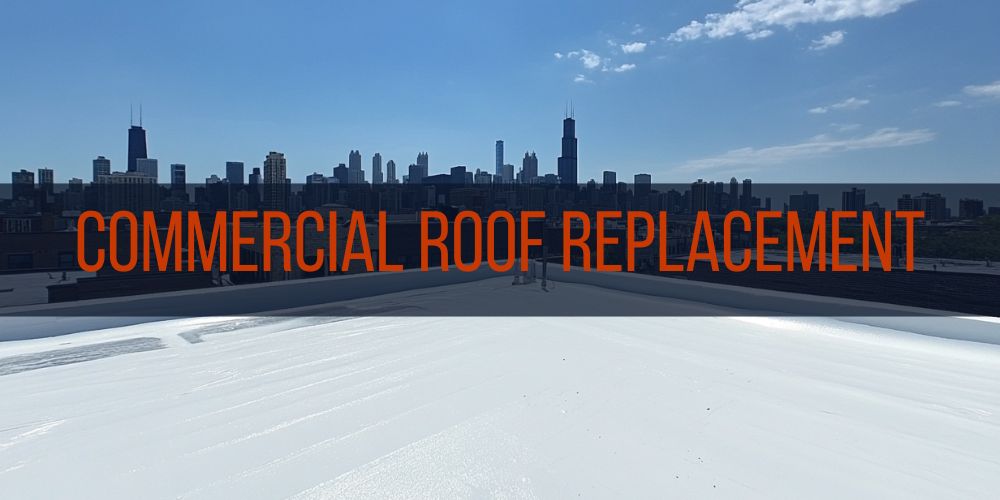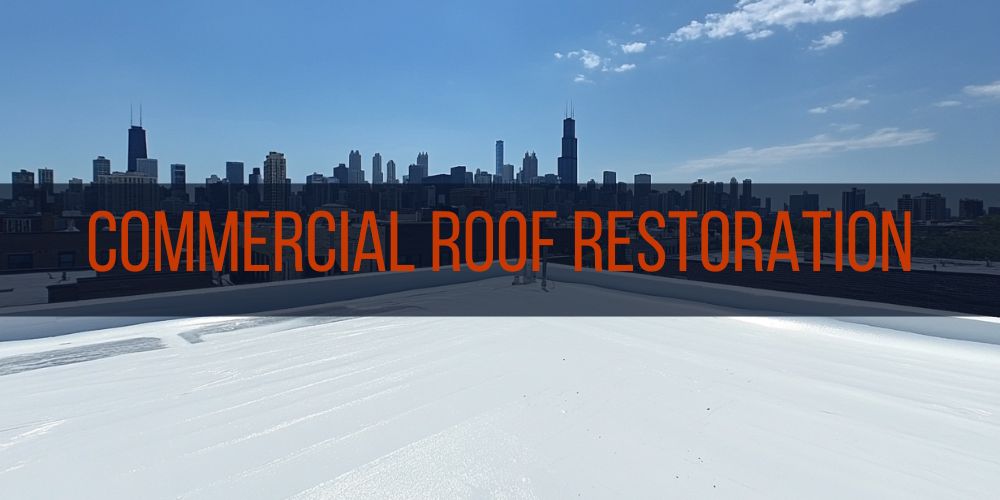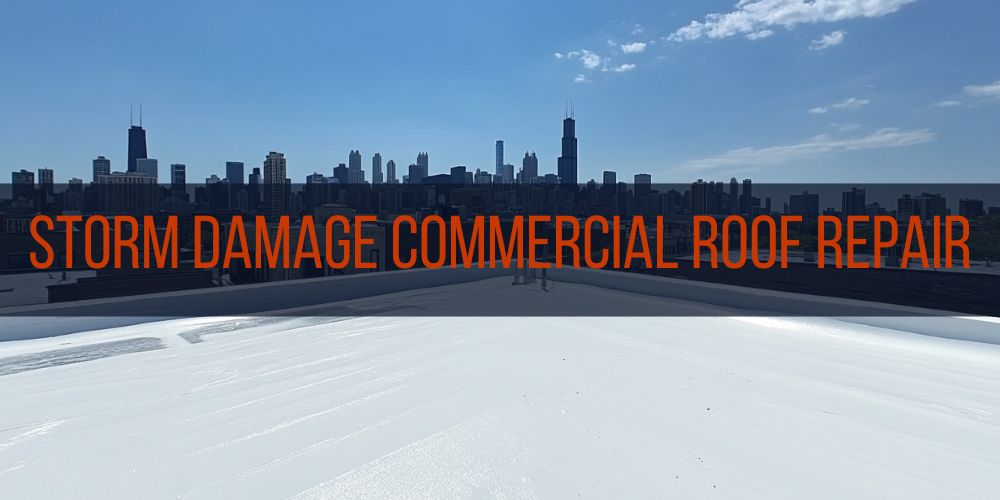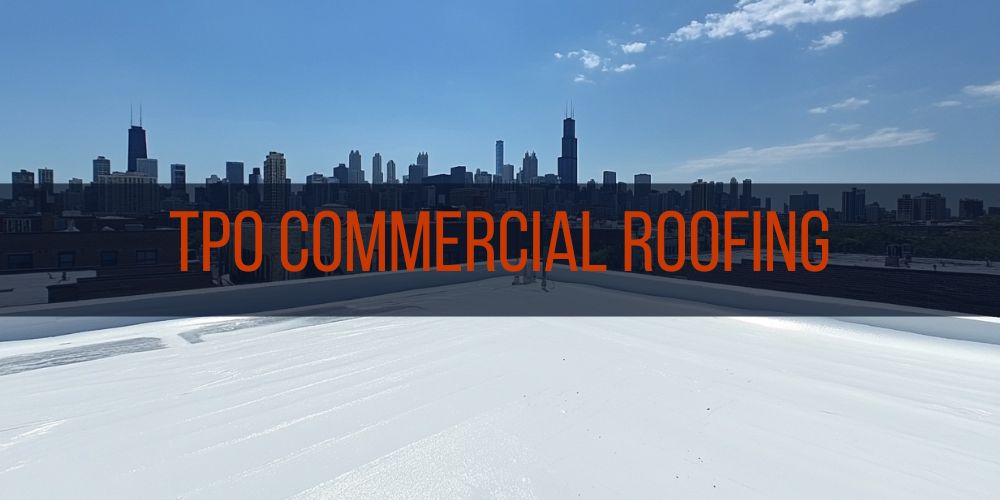Commercial Roofing Chicago: Commercial and Industrial Roofing Professionals
Commercial Roofing Chicago specialize in providing reliable commercial and industrial roofing services designed to withstand Chicago's extreme weather conditions. Commercial Roofing Chicago offer a range of commercial roofing services, including installation, repair, maintenance, and inspections, with a focus on durability and long-term protection. Commercial Roofing Chicago are committed to their motto, “Built to Endure, Designed for Chicago”, as they utilize the latest techniques and high-quality materials to ensure optimal roof conditions and prevent costly future roof repair works. Commercial Roofing Chicago cater to a full range of commercial roofing services and offer solutions tailored to meet the specific needs of businesses in the unique climate of the Chicago area.
Commercial roofing refers to the installation, repair, and maintenance of roofing systems on commercial buildings and industrial facilities. Unlike residential roofing, commercial roofing systems often involve more complex materials and techniques, tailored to accommodate larger areas and specific structural requirements. Common materials used include metal, single-ply membranes like TPO or EPDM, and built-up roofing systems. The focus in commercial roofing is often on durability, energy efficiency, and adherence to building codes and safety regulations.
What Is Commercial Roofing?
Commercial roofing refers to the roofing service dedicated to buildings used for business purposes, such as offices, warehouses, and retail stores. Commercial roofing differs from residential roofing in its scale and complexity, often involving larger surfaces and the need for more durable materials to accommodate the structural needs and environmental conditions of commercial buildings. Commercial roofing systems include flat or low-slope roofs, which are the most common, but they can also include other styles depending on the structure's architecture. The materials used in commercial roofing are typically reinforced with advanced technologies, such as ethylene propylene diene terpolymer (EPDM), thermoplastic membranes like TPO or PVC, built-up roofing systems, and metal panels, each chosen for their durability and energy efficiency. Unique attributes of commercial roofing include the emphasis on long-lasting weather resistance, consideration for accommodating HVAC systems or other rooftop installations, and compliance with specific safety and building codes. Commercial roofing also frequently incorporates energy-saving features, such as reflective coatings, to reduce cooling costs, making sustainability a critical aspect of its design.
Commercial roofing in Chicago must withstand extreme weather conditions, including harsh winters, heavy snowfall, and fluctuating temperatures. The typical use of durable materials and advanced installation techniques is crucial to ensure that roofs can endure the Windy City's high winds and prevent heat loss during freezing temperatures. Chicago's commercial roofing sector often involves incorporating green roofing solutions, which are roofs that have vegetation layers, to promote energy efficiency and manage stormwater runoff, addressing city-wide sustainability initiatives. Commercial roofing contractors in Chicago are expected to follow the city's strict building codes and regulations, ensuring all commercial roofs can effectively protect the buildings and comply with environmental standards.
Have a question about an upcoming project?
What Types of Commercial Roofing Systems Are Most Often Used in Chicago?
The most used types of commercial roofing in Chicago include Modified Bitumen, Built-up roofing (BUR), Thermoplastic (TPO), Ethylene Propylene Diene Monomer (EPDM), Metal roofing, and Green roofing. Modified Bitumen and BUR are popular due to their durability and effectiveness in extreme weather, which is essential in Chicago's harsh climate. TPO and EPDM single-ply roofing systems are favored for their energy efficiency and cost-effectiveness, while metal roofing is appreciated for its longevity. Lastly, green roofing is gaining popularity as an eco-friendly option that helps manage stormwater runoff and insulates buildings.
- Modified Bitumen
- Built-up Roofing (BUR)
- TPO Roofing
- EPDM Roofing
- Metal Roofing
- Green Roofing
1. Modified Bitumen Roofing
Modified bitumen is a type of asphalt-based roofing material that incorporates plastic or rubber polymers to improve durability and flexibility. In commercial roofing, modified bitumen provides a robust option for flat or low-sloped rooftops, offering enhanced protection against environmental factors. This roofing type is typically installed in layers, allowing it to withstand a range of temperatures and conditions, making it suitable for areas experiencing varying weather patterns. Modified bitumen can be applied using torch, hot-mop, or cold adhesive methods, ensuring flexibility during installation. Its reflective surface helps in energy efficiency, reducing heating and cooling costs in commercial buildings. In Chicago, where the weather can create challenges, modified bitumen is a reliable roofing choice due to its resilience and adaptability to extreme conditions.
2. Built-up Roofing
Built-up roofing (BUR) is a traditional roofing system consisting of multiple layers of bitumen alternated with supporting fabrics (felts). This system is widely used in commercial roofing due to its excellent waterproofing and durability properties. BUR systems have proven longevity, often lasting 15-30 years depending on the maintenance level and materials used. The installation involves melting bitumen to create a solid surface that effectively seals out moisture, making it ideal for flat roof structures. Its gravel or mineral-surfaced top layer offers protection from UV damage and provides additional weight for high-wind areas. For commercial buildings in Chicago, BUR is a dependable option due to its ability to withstand harsh winters and heavy rainfall.
3. TPO Roofing
Thermoplastic polyolefin (TPO) is a single-ply roofing membrane known for its high reflective properties and heat-weldable seams. In commercial roofing, TPO is favored for its energy efficiency and durable nature, making it suitable for large flat-roofed buildings. TPO membranes are resistant to chemical exposure and ultraviolet radiation, contributing to their long lifespan and reduced maintenance needs. Its white or light-colored surface significantly reflects sunlight, aiding in energy conservation efforts by lowering cooling costs in commercial buildings. Additionally, TPO is a cost-effective solution, providing a balance of performance and affordability. For Chicago's commercial roofing market, TPO's durability and energy-saving features make it an attractive option, especially during hot summer months.
4. EPDM Roofing
Ethylene Propylene Diene Monomer (EPDM) is a synthetic rubber roofing membrane known for its durability and flexibility. Commonly used in commercial roofing applications, EPDM is favored for its ability to withstand extreme weather conditions and temperature variations. This material is available in black and white, offering options for UV protection and thermal regulation, which helps maintain indoor comfort. EPDM roofing is relatively easy to install and maintain, with a reputation for long-lasting performance, often serving as a reliable roofing solution for over 25 years. Thanks to its resilience and cost-effectiveness, EPDM is a popular choice among building owners seeking sustainable options. In Chicago, EPDM is particularly suitable for commercial buildings due to its robust performance in both icy winters and sweltering summers.
5. Metal Roofing
Metal roofing is a durable and energy-efficient roofing system made from materials such as steel, aluminum, or copper. In the context of commercial roofing, metal offers longevity and minimal maintenance, making it a practical choice for businesses seeking sustainable roofing solutions. Metal roofs can be designed in various styles and colors, providing aesthetic versatility for commercial structures while retaining resistance to harsh weather and fire. Its reflective properties contribute to lowering energy costs by reducing heat absorption, which is advantageous for large buildings. With a lifespan that can exceed 50 years, metal roofing is an excellent investment for long-term durability. In Chicago, the use of metal roofing for commercial buildings is reinforced by its capability to handle heavy snow and ice loads, ensuring the integrity of the structure throughout harsh winters.
6. Green Roofing
Green roofing involves the integration of vegetation and soil on top of a waterproof membrane, creating a living roof system. For commercial roofing, green roofs provide an innovative solution for improving building insulation, reducing urban heat, and managing stormwater. They contribute to a building's sustainability by enhancing air quality, providing energy savings, and supporting biodiversity within urban environments. Green roofs vary from extensive systems with minimal maintenance to intensive systems providing full gardens on rooftops. In addition to their environmental benefits, they can extend the life of the underlying roof structure by protecting it from the elements. In Chicago, green roofing is increasingly popular for commercial properties aiming to meet sustainability goals and adhere to environmental regulations, while also offering a pleasant aesthetic amidst urban landscapes.
What are the key factors to consider when selecting a commercial roofing solution in Chicago?
In Chicago, the top considerations for selecting a commercial roofing solution include understanding the harsh weather conditions, choosing durable materials, ensuring proper insulation, adhering to local building codes, and sourcing experienced contractors. The city's weather can involve severe winters, strong winds, and heavy snowfall, making it crucial to select roofing materials, like modified bitumen or TPO, that can withstand these extremes. Proper insulation is essential for energy efficiency given the city's temperature fluctuations. Compliance with Chicago's specific building codes and standards is mandatory to ensure safety and legality. Lastly, hiring experienced local contractors is crucial, as they have insight into the unique challenges and requirements of roofing in Chicago.
- Understanding Harsh Weather Conditions
- Choosing Durable Materials
- Ensuring Proper Insulation
- Adhering to Local Building Codes
- Sourcing Experienced Contractors
1. Understanding Harsh Weather Conditions
Understanding harsh weather conditions involves recognizing and analyzing the extreme climates and environmental factors that can affect roofing systems. In Chicago, commercial roofing solutions must be designed to withstand severe winters, with heavy snowfall, ice, and freezing temperatures, as well as hot, humid summers. The city experiences rapid temperature changes that can lead to expansion and contraction of roofing materials, thus stressing the importance of selecting resilient roofing systems. Moreover, the Windy City's notorious gusts demand roofs that are designed and installed to resist wind uplift and water infiltration. Chicago roofing contractors focus heavily on these climate variables to ensure long-term performance and structural integrity of commercial roofs.
2. Choosing Durable Materials
Choosing durable materials means selecting construction components that can withstand environmental stressors and endure over long periods without significant deterioration. For commercial roofing in Chicago, this choice is crucial due to the city's harsh weather conditions. Materials such as modified bitumen, EPDM rubber, TPO membranes, and metal are often chosen for their longevity and ability to resist leaks, UV damage, and thermal cycling. The challenging climate requires materials that not only offer durability but also ensure efficient energy performance, as Chicago buildings often seek to mitigate heating costs in winter and cooling costs in summer. Therefore, high-quality materials are a core factor in minimizing maintenance and extending the roof's lifespan.
3. Ensuring Proper Insulation
Ensuring proper insulation involves installing materials that effectively resist heat flow and maintain indoor climate comfort while reducing energy costs. In Chicago's extreme cold and fluctuating weather, insulation is paramount in reducing heat loss during winter, directly impacting a building's energy efficiency and cost. Commercial roofs in the city typically include insulation layers such as polyisocyanurate (ISO) boards or expanded polystyrene (EPS) to achieve high R-values, denoting better thermal resistance. Proper insulation is not only a means of maintaining interior temperatures but also prevents ice dams and cold bridging, common issues in Chicago's freezing temperatures. Roof insulation is critical for compliance with building codes and is a major consideration for businesses seeking LEED certification or other energy-efficient incentives.
4. Adhering to Local Building Codes
Adhering to local building codes means following the regulatory standards set by authorities to ensure safety, environmental protection, and structural integrity. In Chicago, these codes are especially rigorous due to the potential hazards posed by the local environment, including snow load requirements and wind resistance measures. Chicago building codes mandate specific materials, installation techniques, and design criteria to withstand the city's unique weather patterns. Compliance ensures not only legal operation but also protects against possible liabilities or penalties related to non-compliance. Contractors in the area must stay informed about updates and revisions to local codes to provide clients with reliable and legal roofing solutions.
5. Sourcing Experienced Contractors
Sourcing experienced contractors involves finding skilled professionals with the knowledge and expertise to effectively install and maintain roofing systems. In a city like Chicago, experience is fundamental due to the often unpredictable and severe weather conditions that impact roofing projects. Experienced contractors are well-versed in local building codes and are proficient in selecting materials and techniques that cater to Chicago's specific climate challenges. These professionals are adept at risk management, troubleshooting, and providing warranties that cover the potential impacts of the weather. Working with seasoned contractors ensures quality workmanship and the longevity of commercial roofs, providing business owners with peace of mind concerning their investment.
How Much Does Commercial Roofing Cost in Chicago?
The cost of commercial roofing in Chicago typically ranges between $2 and $18 per square foot, depending on the roofing material and project complexity. TPO, EPDM, and PVC roofing are common choices for flat commercial roofs, with prices varying based on durability and installation requirements. Metal roofing is among the most expensive but offers unmatched longevity, while roof coatings provide a cost-effective way to extend a roof’s lifespan. The table below outlines estimated pricing for various commercial roofing services in Chicago, helping business owners plan their budgets effectively.
| Roofing Service | Estimated Cost per Square Foot |
|---|---|
| TPO Roofing | $5 - $9 |
| EPDM Roofing | $6 - $10 |
| PVC Roofing | $7 - $12 |
| Built-Up Roofing (BUR) | $5 - $9 |
| Modified Bitumen Roofing | $4 - $8 |
| Metal Roofing | $10 - $18 |
| Silicone Roof Coating | $3 - $7 |
| Acrylic Roof Coating | $2 - $6 |
| Commercial Roof Repair | $4 - $12 (varies by extent of damage) |
| Commercial Roof Inspection | $200 - $600 (flat fee) |
Note: Prices may vary based on project size, material quality, labor costs, and additional factors such as roof accessibility and weather conditions.
